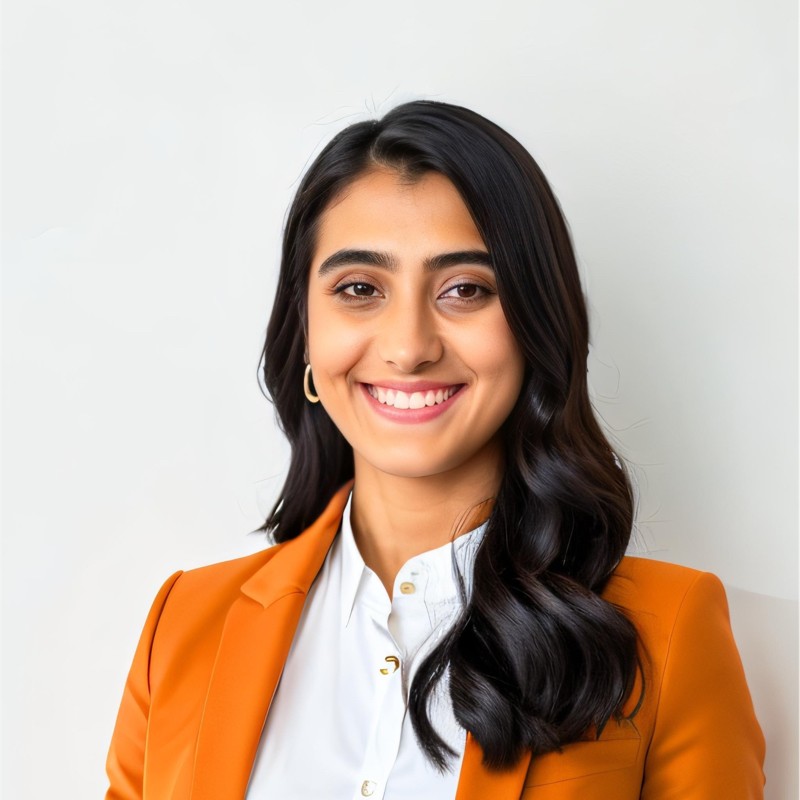Meet Riley; Junior Systems Analyst at Qantas
A/AA TRAILBLAZER SERIES:
MEET RILEY; JUNIOR SYSTEMS ANALYST AT QANTAS
Riley Havela is a trailblazer. Launching into the space industry early in her career with Saber Astronautics and Hypersonix Launch Systems, Riley is now a Junior Systems Analyst at Qantas. With her sights set on orthopedic surgery as a career from childhood, one trip to NASA changed Riley’s path forever. We spoke with Riley on her thoughts on how to better support students through the pipeline, and what networking can do beyond your LinkedIn profile.

A/AA: What are the challenges and opportunities young professionals have solutions for that the current generation would benefit from? How can the industry better work with their lived experience and the new ideas coming into the industry?
Riley Havela: I think with the current generation focused on sustainability, young professionals have a unique insight into how the aerospace and aviation industry can evolve to make these fields more sustainable. Experienced industry members should openly welcome ideas from younger professionals that are outside the current norm and find a way to create a feasible solution using the combined knowledge bases from experienced and new professionals.
A/AA: What experience did you have coming through the pipeline to get into your current role today? How did you start in the industry?
Riley Havela: I started my journey into the industry very young, as young as 16. I hadn’t even finished high school. From a young age I was very career driven and wanted to make an impact as soon as I could. In year 11 I secured a very impressive mentorship which opened many avenues for meeting industry professionals from a young age. I took this mentorship with me into university and from there started my networking from year 1. Because of this, I secured my first internship at Saber Astronautics when I was in my second year at university. Interestingly, it was actually a more business development internship than engineering, but I was able to learn key skills such as programming and propulsion and strengthen my connections with industry professionals. It was with these connections that I was able to secure other internships and my first junior position in the aerospace industry. So, the TL;DR is NETWORKING and making connections. To network is one thing but keeping those connections solid is another skill that is often not taught and discussed.
A/AA: When did you first realise you wanted to work in STEM/Aviation? What were the influences that helped you realise?
Riley Havela: I had always loved math and science from a very young age. My mother and grandparents would even say before I started school. This stems from my family always reading to me and my grandpa always sharing his knowledge of science and reading a kids atlas with me every night to show me the wonders of the world. I think this was fundamental. In piquing my love of learning which I took with me into school. When I started high school and right up to year 11, I wanted to be an orthopedic surgeon. What made me change was visiting NASA in Houston. I had always loved space and seeing all the technology and how the space industry had involved, I fell in love. I always had the amazing opportunity to talk to an astronaut about my dream career. This talk was huge for me because it made me realise that I should work in the field I loved - aerospace, and study to become an aerospace engineer. That is exactly what I did.
A/AA: What support networks have enabled you to continue working towards your goals and how can the industry better support this?
Riley Havela: The biggest support networks I had outside of my family was actually the industry. My connections in industry knew the struggles of being a university student that lived away from home and would find ways to help me even if the support was as simple as buying me my daily coffee. I have a lot of opinions on how young professionals can be better supported but fundamentally I think it comes down to universities being more understanding of the student experience. University is where most professionals start and most often the biggest struggles are financial. I think there needs to be more financial support for our university students that are struggling so that this particular stress can be alleviated and help students focus more on their studies. I know at times my attention was taken away from my studies and more to finding avenues to help me pay for my weekly rent. Looking back, I wish my university understood this struggle and had more ways to help others in my situation or worse.
A/AA: What do you think is the single most important transferrable skill that you have developed, whether at work or in your personal life, that you know you can bring into any role you step into?
Riley Havela: Networking, and not just the collecting of business cards or connections on LinkedIn. The actual formation of a mutually beneficial connection is the type of networking that I developed and grew in all aspects of my life. I still use it every day. Whether it be forming a connection with my favourite cafe owner or meeting high up executives in other departments at my work. It is these types of connections that propel you forward and see yourself presented with opportunities that others miss out on. Why? Because people see my value and I see theirs, beyond the ‘what they can do for me’ perspective that is often the sole focus of young professionals because they simply don’t know any different. I strongly suggest everyone learn this skill and not just for their career. It’s not an easy one to learn but once learned you

